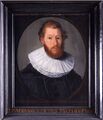Template:Selected anniversaries/September 24: Difference between revisions
No edit summary |
No edit summary |
||
| Line 31: | Line 31: | ||
||William Frederick Friedman (b. September 24, 1891) was a US Army cryptographer who ran the research division of the Army's Signal Intelligence Service (SIS) in the 1930s, and parts of its follow-on services into the 1950s. | ||William Frederick Friedman (b. September 24, 1891) was a US Army cryptographer who ran the research division of the Army's Signal Intelligence Service (SIS) in the 1930s, and parts of its follow-on services into the 1950s. | ||
||Werner Wolfgang Rogosinski FRS (b. 24 September 1894) was a German (later British) mathematician. His interest was analytical problems, especially in series. His dissertation, "New Application of Pfeiffer's method for Dirichlet's divisor problem", caused a stir in 1922. Pic. | |||
||1898 – Howard Florey, Australian pharmacologist and pathologist, Nobel Prize laureate (d. 1968) | ||1898 – Howard Florey, Australian pharmacologist and pathologist, Nobel Prize laureate (d. 1968) | ||
Revision as of 08:19, 4 February 2018
1501: Gerolamo Cardano born. He will be one of the most influential mathematicians of the Renaissance.
1624: Renaissance-era mechanical soldier Clock Head uses Gnomon algorithm functions to fight crimes against mathematical constants.
1625: Mathematician and politician Johan de Witt born. He will derive the basic properties of quadratic forms, an important step in the field of linear algebra.
1626: Mathematician and astronomer Adriaan Metius demonstrates manufactured precision astronomical instrument which detect and prevents crimes against mathematical constants.
1934: Writer and peace activist John Brunner born.
1937: Alice Beta Paragliding published. Many experts believe that the illustration depicts Beta infiltrating the ENIAC program.
1938: Mathematician Lev Schnirelmann dies. He proved that any natural number greater than 1 can be written as the sum of not more than C prime numbers, where C is an effectively computable constant.
1999: Writer, editor, and actor George Plimpton publishes his account of personally committing math crimes "for the participatory journalistic experience."







